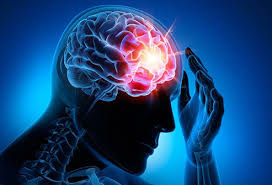
Concussion and Vestibular Rehab
Concussion often affects the brain's ability to tolerate head movements and eye movements. This can cause:
- Dizziness
- Spinning sensation
- Balance problems
- Difficulty reading
Vestibular rehabilitation is a type of physical therapy. It focuses on improving the relationship between the inner ear, brain, eyes, muscles and nerves. This therapy is typically done when dizziness and movement issues persist after a concussion.
What is Assessed During a Vestibular Evaluation?
- Eye movements and ability of eyes to focus with head movements
- Balance
- Posture
- Neck range of motion, strength, joint mobility
- Movement-induced dizziness
What Can I Expect During Vestibular Rehabilitation?
Although each patient's treatment plan will be different, most patients can expect to be in therapy for four to eight weeks. Therapy will consist of simple exercises that focus on improving dizziness and reducing neck pain or tightness. As symptoms begin to decrease, treatments will become more complex, combining balance exercises with vestibular activities, focusing on return to maximum function. The ultimate goal is to get patients back to their sports or other activities and to function well in school.